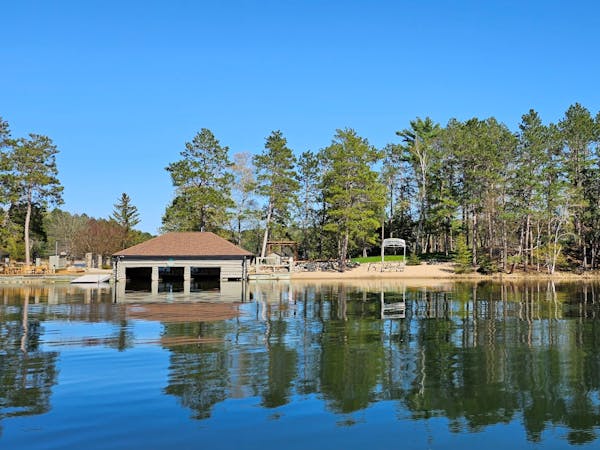The opening days of the walleye and northern pike season produced winners and losers based on the bite and weather dynamics, but overall participation was 6% lower than last year and at its lowest since 2014.
Brad Parsons, Department of Natural Resources (DNR) fisheries chief, said the slump in license sales was tied to "terrible'' weather across the lower portion of the state and the lateness of spring.
"People often buy their license the first time they fish in the year,'' Parsons said. "We hope to make some up as the weather improves.''
According to license sales tracked by the DNR, 344,871 people had purchased a fishing license through Monday, or 22,500 fewer anglers than a year ago. Fishing ballooned during the social distancing era of COVID-19, drawing 441,000 license buyers for the 2020 fishing opener and 461,804 buyers for opening weekend in 2021. The 2021 fishing opener attracted 25 % more license-holders than were at this year's opener. In 2019, the year leading up to COVID-19, DNR sold nearly 348,000 fishing licenses through Monday after the opener, slightly more than this year.
This week, Parsons was on the receiving end of fishing reports from all over the state. As expected, widespread wind and rain hurt catch rates in the southern tier while calm, sunny, pleasant conditions up north coincided with success, including lots of walleye limits caught on Upper Red Lake, Lake Winnibigoshish and the south shore of Lake of the Woods. He said walleyes also were biting on Mille Lacs, Lake Vermilion, Leech Lake, and lakes in the Spicer-New London area, including Norway Lake.
"I'm hearing pretty good stuff from lakes up north,'' Parsons said.
Access areas were packed at Lake Emily, a classic opener destination south of Glenwood, and there was joy this week in the DNR fisheries office in Grand Marais when staff members could finally say inland lakes off the North Shore were ice-free.
Heading into the opener, there was concern about the statewide minnow shortage, but anglers were saved by a bountiful, last-minute harvest of shiners. "The (minnow) reports I received were generally good,'' Parsons said.
Nate Olson, a DNR fisheries manager in the Detroit Lakes area, said crappies and sunfish saved the day on a lot of lakes in his area that also hold walleyes. "Panfishing probably stole the show,'' Olson said. "The results were mixed on walleyes.''
More concerning for anglers, however, is the extent of fish mortality from winterkill in the region, he said. "Some of our lakes haven't seen this severe of a kill since the mid-'90s,'' Olson said.
Shallow lakes are common in the region, and winterkill — caused by depletion of dissolved oxygen — worsened this year from the combination of low water levels, near-record levels of snow, early ice-up and late ice-out. Shallow lakes elsewhere in the state, including what used to be the prairie pothole region, also experienced heavier than normal winterkill.
Olson said popular fishing lakes around the Tamarac National Wildlife Refuge, including Tamarack Lake, Height of Land Lake, Shell Lake and Waboose Lake, will not offer the same quality of fishing as they did last year or the year before because of winterkill.

Softball state tournament: Live updates from championship games at Jane Sage Cowles Stadium

Podcast: How the Pacers taught the Thunder (and the Wolves) a playoff lesson
Yuen: How success has pushed Minnesotans off sidelines in trans athlete debate
David Festa's return to Twins goes south in a hurry

